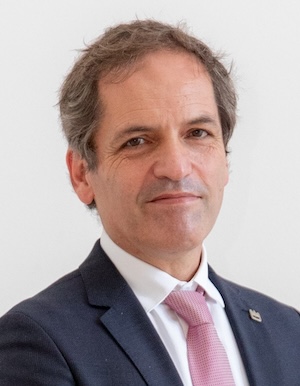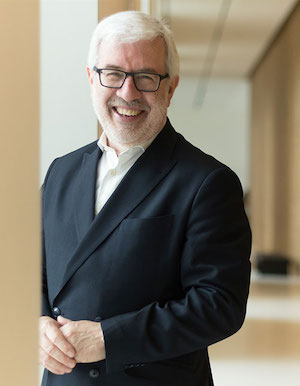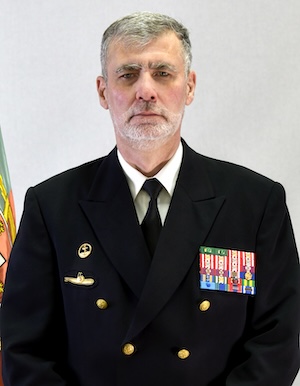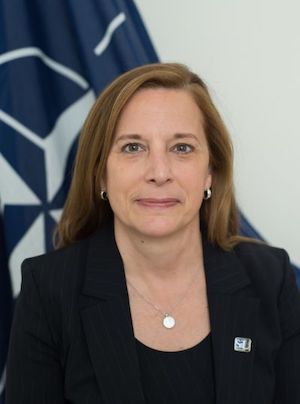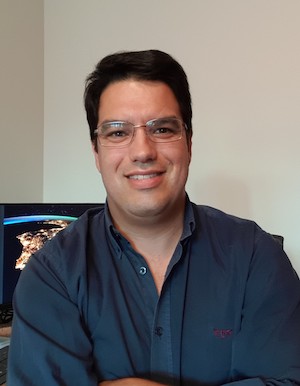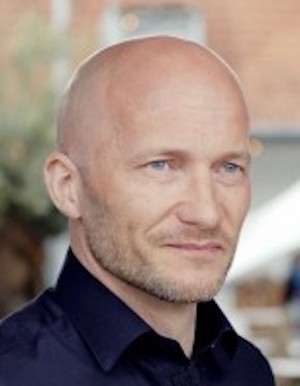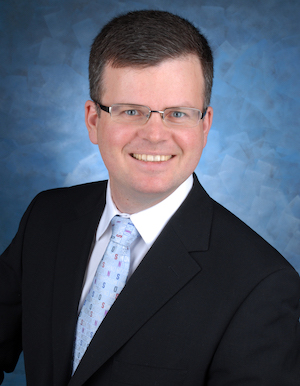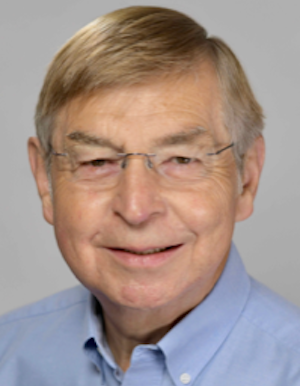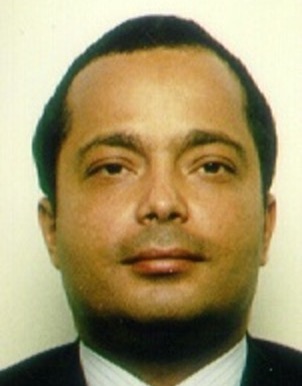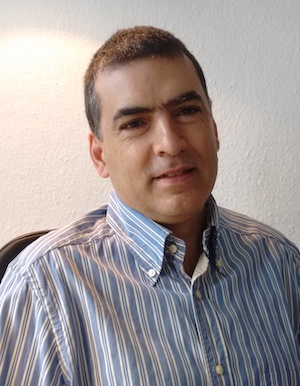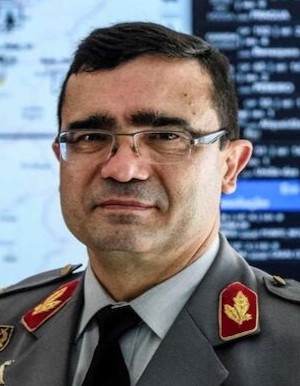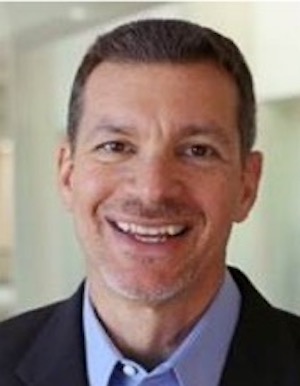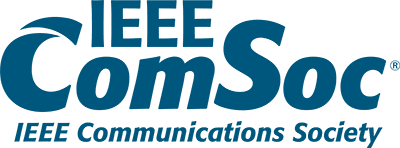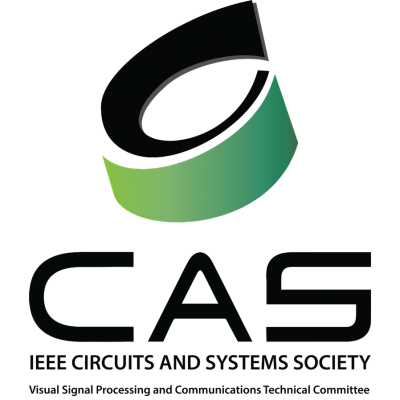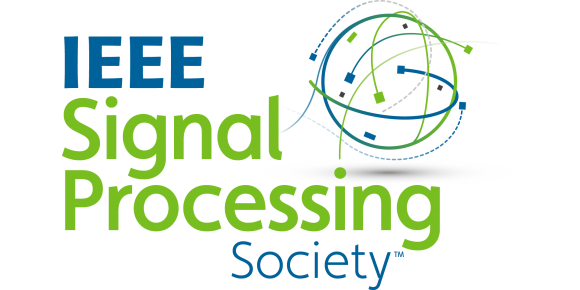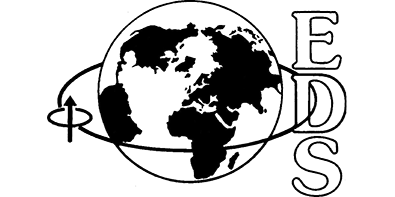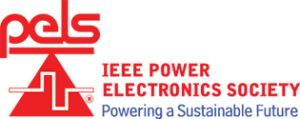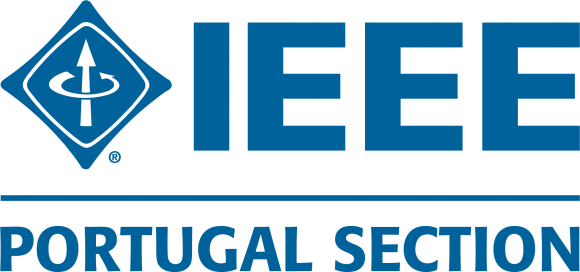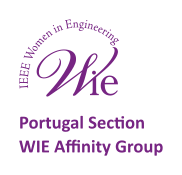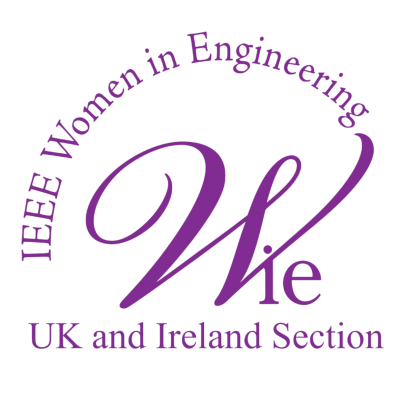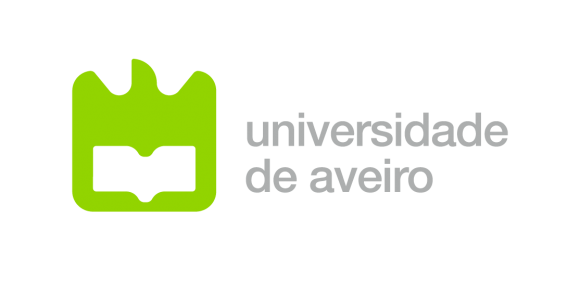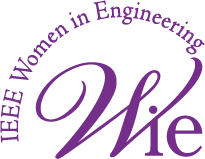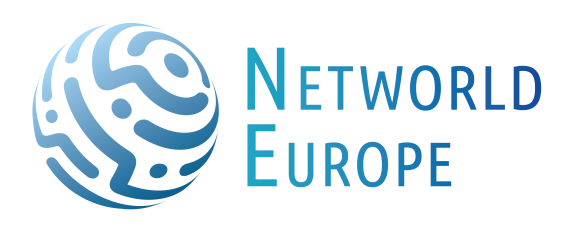Plenary Program
Welcome Address
Paulo Jorge Ferreira, Rector of the University of Aveiro, Portugal
Schedule: Monday October 16th, 09:00-10:30 WEDST
Speaker Biography
Paulo Jorge Ferreira is Rector of the University of Aveiro since May 8, 2018. He holds a PhD in Electrotechnical Engineering and is Professor Catedrático at the Department of Electronics, Telecommunications and Informatics of the University of Aveiro. Paulo Jorge Ferreira has management experience in department positions, course management, as well as in scientific commissions, in evaluation commissions, in the UA General Council, in the Coordinating Council for Performance Evaluation of the UA, in the Council of the UA Doctoral School. His research activity resulted in national and international patents, and in the IBM Scientific Award received in 1993.He collaborated or was responsible for several research projects; he was editor of international scientific journals in engineering and mathematics; and he is author or co-author of several works published in international journals. He’s listed in the top 2% most sited scientist in his field in a study published in PLos Biology.
Plenary Address
Mário Campolargo, Secretary of State for Digitalisation and Administrative Modernisation, Portugal
Schedule: Monday October 16th, 09:00-10:30 WEDST
Speaker Biography
Mário Campolargo was born in Gafanha de Aquém, Ílhavo in 1956. He graduated in Electrotechnical engineering from the University of Coimbra (1978), has a master’s degree in Computer Science from Imperial College of London (1983), a postgrad degree in Management from École Solvay of Brussels Free University (1992) and a diploma in European Studies from Católica University in Lovaina-a-Nova (1995). He was a researcher at the Telecommunication Studies Centre (Aveiro) for 12 years and headed the Software Engineering division. He was the Portuguese representative at the International Telecommunication Unite and led several European projects. In 1990, he joined the senior staff at the European Commission and was manager and scientific lead of the RACE research into telecommunication programme. In 1999, he took on the role of Head of Unit of "GÉANT and e-Infrastructure" at the DG Information Society, and was charged with several R&D portfolios, focusing especially on implementing global e-Science infrastructures. In 2008, as Director of "Emerging Technologies and Infrastructures at DG CONNECT, he was in charge of the Future and Emerging Technologies area, ICT-based Infrastructures for Science, Cybersecurity, and experimental research for the Internet of the Future. In 2012, he headed the "Net Futures" department at DG CONNECT, focusing especially on the field of the Internet of the Future, including 5G, Cloud computing, the Internet of Things (IOT), Smart Cities and corporate innovation insitiaties, such as Startup Europe. From 2016 to 2022 he was Deputy Director General and Director General of DIGIT (European Commission), in charge of the global strategic and operational coordination of the directorate-general, for the definition and implementation of the European Commission’s Digital Strategy, and the transition of the Commission’s services to working from home during the pandemic, focusing particularly on creating a digital culture and cybersecurity issues. He also led European initiatives in the field of Interoperability (including the COVID digital certificate) and the Modernisation of European Public Administration.
Plenary Address
Admiral Gouveia e Melo, Admiral and Chief of the Portugues Navy, Portugal
Schedule: Monday October 16th, 09:00-10:30 WEDST
Speaker Biography
Keynote #1 - Autonomous Underwater Networks
Catherine Warner, Director, Centre for Maritime Research and Experimentation, NATO Science and Technology Organization
Schedule: Monday October 16th, 14:00-16:00 WEDST
Keynote Description
Since 1998, the NATO Centre for Maritime Research and Experimentation has been involved in technology development for autonomous underwater networks.
Monitoring our oceans is critically important for understanding its resources, its contributions to the climatic evolution of the planet, and for ensuring the safety and security of shipping and underwater infrastructure. While the monitoring of the ocean surface has been possible for decades using remote sensing, collecting sufficient data to create a complete picture of the subsurface remains a challenge. The foremost reasons are the size of the space, over one billion cubic kilometres, the relatively short temporal timescales of its evolution, and the engineering and sensing challenges for operating in and interrogating this space. As we enter the 21st century, autonomous underwater networks promise to offer a scalable solution on which to build a more complete picture of the sub-surface.
The components of autonomous underwater networks have been under development for decades. From less expensive Argos buoys to large unmanned platforms capable of deploying high-end sensors on extended missions, it is increasingly clear that we are on the verge of a true underwater Internet of Things. For such an “UWIoT” to be effective, it must be enabled through standards for underwater communications, data sharing and collaborative autonomy. NATO has been leading the way on standardization for autonomous underwater networks - from open standards for digital underwater communications - to standards for federated collaborative autonomy. Much of the cutting edge of the application of these activities is demonstrated during the annual back-to-back Portuguese REPMUS and NATO DYMS exercises.
In this talk, we will discuss the drivers and requirements for autonomous underwater networks, review the state of the art observed during these exercises, and address the outstanding challenges that must be overcome before a true UWIoT can become a reality.
Speaker Biography
Catherine Warner is Director, Centre for Maritime Research and Experimentation, an executive body of NATO’s Science and Technology Organization, since 2017. Dr Warner, an experienced professional and technical leader in defence science and technology, came to NATO from the US Office of the Secretary of Defense, where she was the Science Advisor to the Director of Operational Test and Evaluation. Previously she held positions at the Institute for Defense Analyses as an analyst and Assistant Division Director in Operational Evaluations. She is a strong advocate for STEM education and passionate about research and experimentation bringing scientists, engineers, and warfighters together to ensure that NATO’s militaries maintain the technical edge over our adversaries. Dr Warner is originally from Albuquerque, New Mexico, attended the California State University in San Jose and earned her Ph.D. degree in Chemistry from Princeton University.
Keynote #2 - Space Infrastructure to Connect the Dots
Bruno Carvalho, Director, D-Orbit & Access.Space Alliance Ambassador for Portugal and Advisor to Astralintu Space Technologies in Ecuador
Schedule: Monday October 16th, 14:00-16:00 WEDST
Speaker Biography
After co-founding a web software services company back in 2003 Bruno decided to chase is passion and has been working in space since 2005 when he moved to France, to work on the Herschel and Planck program at Thales Alenia Space. Bruno, returned to Portugal in 2007 and joined CRITICAL Software, as Business Development Manager, where he was responsible for the strategy and for driving the internal competence creation for the company to strive in the space market. Bruno moved to the UK in 2011, where he was offered a position as Business Development Manager at SCISYS (acquired by CGI). There he was responsible for a joint strategy for the company’s Space division, including opportunities to spin-off capabilities into other markets and developing long-term relationships with both institutional and commercial partners and clients. In June 2017, Bruno founded Ilex Space, in the UK, which aims at providing strategic business consultancy in the Space market in Europe, and now have a presence in the UK and Portugal. Ilex Space is one of the founding members of the Atlantic Spaceport Consortium aiming at providing launch services from the Azores. After helping establish D-Orbit in the UK, Bruno joined D-Orbit in Lisbon, in June 2019, where he assumed responsibility over the Portuguese operation as Managing Director, while providing Business Development support to the group. Bruno is also the Access.Space Alliance ambassador for Portugal and advisor to Astralintu Space Technologies in Ecuador. With more than 16 years of experience in the Space Industry, Bruno founded Ilex Space, in the UK in 2017, providing strategic business consultancy in the Space market in Europe, now with a presence in the UK and Portugal. Ilex Space is one of the founding members of the Atlantic Spaceport Consortium aiming at providing launch services from the Azores. After helping establish D-Orbit in the UK, Bruno joined D-Orbit in Lisbon, in June 2019, where he assumed responsibility over the Portuguese operation as Managing Director, while providing Business Development support to the group. Bruno is also the Access.Space Alliance ambassador for Portugal and advisor to Astralintu Space Technologies in Ecuador.
Keynote #3 - The Blue Dataverse Supporting the Blue Planet
Tom de Block, Steering Board Vice-chair of AIOTI
Schedule: Tuesday October 17th, 14:00-16:00 WEDST
Speaker Biography
Tom is a creative mind and always a few steps ahead of the pack.And family man, father of 3 kids. In 1999, software testing on an R&D project with Japanese engineers from Panasonic (Matsushita) placed Tom ahead of the market. Ever since, he gathered in-depth multi-sector insights during QA consultancy positions in IT Quality and Governance departments, from banking over medical and public services up to Schengen Homeland security. Tom does not follow trends. He rather creates them. He chairs industrial task forces and meanwhile also promotes public foundations. Currently, he operates under the Alliance for IoT and Edge Computing Innovation (AIOTI) as vice-chair of the steering board and task force leader on DLT Testbeds and the European WEB3 Accelerator. Tom pioneered the AIOTI High-Level Architecture for IoT enabled data markets, a blueprint for sustainable data sharing in a federated data space. His publications are used in multi-million EU funded Smart Energy, Mobility, Smart cities and Agriculture programs. As co-founder of ALGAE Alpha BV and the BlueHearts Network, he works on nature-based solutions for climate action enabled by People and Technology. The Blue DataVerse being one of their success stories. By passion and heritage, Tom is beer sommelier and co-founder of the Belgian Barrels Alliance supporting and maintaining the UNESCO recognized Belgian beer culture.
Keynote #4 - A vision on IoT in an AI-native and compute-native communications world
Markus Mueck, Intel Deutschland GmbH, Germany
Schedule: Tuesday October 17th, 14:00-16:00 WEDST
Keynote Description
The talk will detail a vision on future cellular and other communications systems which rely on AI-native and compute-native design principles. AI-as-a-Service and Compute-as-a-Service features will be exposed to external entities and especially to IoT devices. Consequently, IoT devices will have access to almost unlimited machine learning, inferencing and computing resources. It will be a game changer to the industry as a whole and require disruptive thinking on the role of IoT in the future. Also, in its role as Vice-Chair of the Board of the European Telecommunications Standards Institute, the speaker will outline recent actions by ETSI to increase its linkage to the European and global research ecosystem. It will be discussed how researcher are being supported to take their findings towards industrial exploitation through standards.
Speaker Biography
Dr. Markus Mueck received the Dipl.-Ing. and ing. dipl. degrees from the University of Stuttgart, Germany and the Ecole Nationale Supérieure des Télécommunications (ENST), Paris, France respectively in 1999. In 2006, he received the Doctorate degree of ENST in Communications. Dr. Mueck is a Principal Engineer with Intel Deutschland, Munich, Germany and an Engineering Director; he acts as Member of the Board of the 5G Automotive Association (5GAA), Vice-Chair of the ETSI Board, he is Chair of ETSI OCG AI coordinating the overall effort of the organization on AI, he is member of the ETSI Delegation to 3GPP PCG/OP and Adj. Professor of University of Technology, Sydney, Australia.
Keynote #6 - The Internet of Things yet to Come
Prof. Peter Cochrane, Universities of Suffolk and Hertfordshire, UK
Schedule: Wednesday October 18th, 14:00-16:00 WEDST
Keynote Description
IoT growth forecasts currently tend to span 30 – 60 Bn ‘Things’ by 2030. However, this ignores the central IoT role in realising sustainable societies where raw materials and component use has to see very high levels of reuse, repurposing and recycling. In such a world almost everything we poses and use will have to be tagged and be electronically addressable as a part of the IoT. Such a need immediately sees grow estimates of 2Tn or more over the span of Industry 4 and 5. On the basis of energy demands alone, it is inconceivable that the technologies of BlueTooth, WiFi, 4, 5, and 6G could support such demand, and nor are the signalling and security protocols viable on such a scale.
The evolution of the IoT will therefore most likely see a new form of dynamic network requiring new lightweight protocols employing very little signal processing, together with very-low energy wireless technologies (in the micro-Watt range) operating over extremely short distances (~10m). This need might be best satisfied by a new form of ‘Zero Infrastructure Mesh Networks’ that engage in active resource sharing, lossy probabalistic routing, and cyber security realised through an integrated ‘auto-immunity’ system. Ultimately, we might also envisage data amalgamation at key nodes that have a direct connection into the internet along with an additional layer of cyber checks and protection.
In this presentation, we justify the above assertions by illustrating the very real energy and network limitations of today’s 5G networks and those already obvious in current 6G proposals. We then go on to detail how a suitable IoT MeshNet might be configured and realised.
Speaker Biography
After and extensive career in Telecoms Peter retired from BT as CTO in 2000 to form his own consultancy company. This saw the founding of eBookers, Shazam Entertainment, and a raft of smaller start. Peter has also seen assignments with UK, Singapore and Qatar government departments; HP, Motorola, 3M, Dupont, Ford, Sun, Apple, Cisco, Rolls Royce, BMW, Jersey Tel, Chorus, FaceBook, and Huawei. In 2017 Peter was appointed Prof of Sentient Systems to the University of Suffolk, and a visiting Prof to Herfordshire, Nottingham Trent and Salford. He has received numerous awards including the IEEE Millennium Medal, Martlesham Medal, Prince Philip Medal, Queens Award for Export and Technology and an OBE in 1999. He has also received numerous honorary degrees and is widely published in the media and professional journals.
Keynote #7- 5G for Connected and Automated Mobility (CAM) - IoT Challenges and Contributions
Jorge Pereira, European Commission, DG Connect, Brussels, Belgium
Schedule: Thursday October 19th, 14:00-16:00 WEDST
Keynote Description
Connected and Automated Mobility (CAM) remains a major priority in Europe, in context of the 5G Action Plan (2016) and the recent Europe’s Digital Decade (2021), in light of the European Green Deal objectives (2019 and 2021).
In the context of the 5G PPP in Horizon 2020, the Commission invested over 150M€ in research and innovation projects addressing the major challenges on the way to continuous provision of advanced CAM services in major transport paths, and effectively everywhere people live and work.
This keynote will focus on the IoT contributions towards improving the efficiency of mobility across the board (pun intended), from smart cities to smart agriculture, from vehicles to logistics, from roads to tracks to waterways.
Speaker Biography
Jorge Pereira obtained the Engineering and M.Sc. degrees in Electrical and Computer Engineering from Instituto Superior Técnico (IST), Lisbon, Portugal in 1983 and 1987, respectively, and a Ph.D. in Electrical Engineering-Systems from the University of Southern California (USC), Los Angeles, in 1993. He has been with the European Commission since September 1996, becoming Principal Scientific Officer in 2005. He has been covering a broad variety of areas, with a focus on networking, devices, applications and services, experimentation, testing and validation, as well as deployment. He works, since 2016, in the area of Future Connectivity Systems, focusing on 5G and beyond, being responsible for the areas of Advanced Spectrum Management; optical-wireless convergence; Connected and Automated Mobility (CAM); and Public Protection and Disaster Relief (PPDR).
Keynote #8 - Toward Secure IoT Lyfecycle Management
Antonio Skarmeta, Universidad de Murcia, Spain
Schedule: Thursday October 19th, 14:00-16:00 WEDST
Keynote Description
Security management of IoT infrastructures encompassing the full lifecycle of products and continuous certification are fundamental tools to guarantee a high-level security, as emphasized by Cybersecurity Act.To ensure security compliance throughout the lifetime of the device, we will describe in this talk the design and implementation of a cybersecurity lifecycle management framework for IoT devices and its application on different scenarios. The framework is intended to support from the design, the bootstrapping, commissioning and upgrading the device security and how it can be integrating in data sharing security information solutions. How projects like CERTIFY or ENTRUST aims at proposing flexible solutions for controlling the secure on-boarding process of new embedded devices and assuring their runtime integrity will be discussed. Finally new challenges and future direction of the secure IoI lifecycle management aspects will be presented.
Speaker Biography
Dr Antonio Skarmeta received the M.S. degree in Computer Science from the University of Granada and B.S. (Hons.) and the Ph.D. degrees in Computer Science from the University of Murcia Spain. Since 2009 he is Full Professor at the same department and University. Antonio F. Skarmeta has worked on different research projects in the national and international area in the networking, security and IoT and 5G area. His main interested is in the integration of 5G, security services, identity, IoT and Smart Cities, being scientific manager of the Smart City project of Murcia City Hall (MiMurcia). He has been the head of the research group ANTS since its creation on 1995. Actually, he is also advisor to the vice-rector of Research of the University of Murcia for International projects and head of the International Research Project Office. Since 2014 until 2010 he has been Spanish National Representative for the MSCA within H2020. He has published over 200 international papers and being member of several program committees.
Keynote #9 - The challenges of PPDR Mission-Critical Communications - handling major events
Brigadier-General Paulo Viegas Nunes, President at SIRESP SA, Portugal
Schedule: Friday October 20th, 14:00-16:00 WEDST
Keynote Description
The challenges that Public Protection and Disaster Relief (PPDR) networks need to face are increasing in scope and magnitude and thus putting more pressure on the agencies and organizations responsible to deal with new, more frequent, and disruptive environmental, emergency and security events. All involved parties need to cooperate with one another, to align their procedures, to share the necessary information, and to be interoperable. Resilient PPDR Mission-Critical Communications are key to assure unity of effort and purpose, in all circumstances, as the World Youth Day 2023 recently proved.
To face these challenges, as the National PPDR Network, SIRESP is launching a set of innovative events and exercises that can be seen as an open space to discuss topics of mutual interest and operational issues, building up resilience in the PPDR domain. These can trigger new solutions and be a game-changer by providing decision makers and mission critical communications service providers with direct access to a pool of innovation and expertise from which PPDR networks can draw firsthand, state-of-the-art capabilities.
Speaker Biography
National Public Protection and Disaster Relief Network, President of the Board (2022-now)
Army CIS Director (2022) Cyber Academia and Innovation Hub, Project Director (2021-2022)
NATO Communications and Information Academy, Acting Director (2019-2020)
NATO Communications and Information Systems School, Commandant (2017-2019)
EU Military Training Group Cyber Discipline, Co-Lead (2014-2017)
NATO Multinational Cyber Defence Education and Training Smart Defence Project, Project Manager (2014-2017)
Keynote #10 - The Emergence of the Intelligent Digital Twin
Daniel R. Isaacs, Digital Twin Consortium, USA
Schedule: Friday October 20th, 14:00-16:00 WEDST
Keynote Description
With the confluence of enabling technologies and the broad-based adoption of AI, Digital twins are becoming increasingly more intelligent. These “Intelligent Digital Twins” are already enabling significant transformational business outcomes across many industry verticals. This keynote presents the evolution of Digital Twins through practical use cases and real-world applications, including emergency readiness and management.
Speaker Biography
Dan Isaacs is the Chief Technology Officer and General Manager of Digital Twin Consortium. He is responsible for setting and facilitating the technical direction of the Member Consortium, liaison partnerships, and business development support for new memberships. Dan also serves as the Chief Strategy Officer for the Object Management Group (OMG). His responsibilities include developing and implementing a comprehensive strategy to unify OMG community of consortia (AREA, BPM+ Health, CISQ, DTC, Industry IoT Consortium, OMG SDO, and Responsible Computing) and to expand the global ecosystem. Dan is responsible for driving advanced technology awareness and adoption towards accelerating sustainable global digital transformation across industries, academia, government, and geographies. Previously, as Director of Strategic Marketing and Business Development at Xilinx, Dan was responsible for emerging technologies, including AI/ML, defining, and executing the IIOT ecosystem strategy. Before joining the Digital Twin Consortium, Dan was responsible for Automotive Business Development focused on ADAS and Automated Driving. Dan represented Xilinx as a member of the Industrial Internet Consortium (IIC), leading the development of two testbeds from concept to production. Dan has over thirty years of experience working in Automotive, Industrial, Aerospace, and Consumer-based companies, including Ford, NEC, LSI Logic, and Hughes Aircraft. An accomplished speaker, Dan has delivered keynotes and seminars and served as a panelist, and moderator at World Forums, Industrial IOT Global conferences, Embedded World, Embedded Systems, and FPGA Conferences. He is a member of multiple international advisory boards and holds degrees in Computer Engineering: EE from Cal State University B.S. in Geophysics from ASU.



